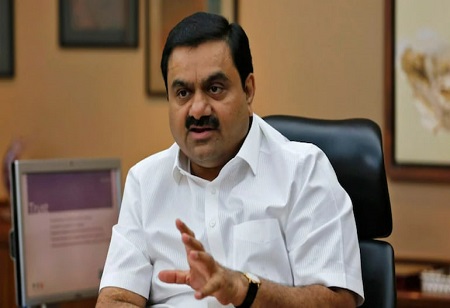
Adani Group pledges $13-billion Ambuja, ACC shares

 Days after completing its $6.5-billion acquisition of Ambuja Cements and ACC and chalking out plans to double the cement manufacturing capacity to 140 million tonne in the next five years, Adani Group has pledged shares of the two companies valued at $13 billion based on its closing price.
Days after completing its $6.5-billion acquisition of Ambuja Cements and ACC and chalking out plans to double the cement manufacturing capacity to 140 million tonne in the next five years, Adani Group has pledged shares of the two companies valued at $13 billion based on its closing price.
According to separate filings made to the stock exchanges on Tuesday by Deutsche Bank AG’s Hong Kong branch, about 57% of ACC and 63% of Ambuja Cements have been pledged “for the benefit of certain lenders and other finance parties”.
Endeavour Trade and Investment and Xcent Trade and Investment are entities linked to Adani Group and are part of the agreements under which the shares have been pledged. In August, Endeavour Trade had received approval from the Competition Commission of India (CCI) for acquisition of stake in Holderind Investments, a Mauritius-based holding company of Holcim’s India unit.
After completing the acquisition of the two cements firms last week, Adani Group chairman Gautam Adani had said he saw a multifold rise in cement demand in the country on the back of record-breaking economic growth and the government’s infrastructure creation push, which will give significant margin expansion.
With the acquisition of Ambuja Cements and ACC, Adani Group has emerged as the second-largest cement maker in the country with an installed production capacity of 70 million tonne per annum. The group now controls close to 14% of the country’s cement market. The country’s largest cement maker, UltraTech, controlled by the Aditya Birla Group, has a capacity of 115 million tonne per annum and a market share of 25%. UltraTech has outlined a plan to raise its capacity to 200 million tonne by 2030.
According to a recent analysis by brokerage Credit Suisse, the acquisition of ACC and Ambuja Cements is estimated to add another Rs 40,000 crore to the debt of Adani Group, taking it to approximately Rs 2.6 trillion.
The conglomerate has seen debt levels rise over the past five years from Rs 1 trillion to Rs 2.2 trillion on the back of expansion of the ports business, green energy investments, acquisition of transmission business and venturing into newer areas such as airports, roads and data centres, the report had noted.
While the gross debt levels may have risen, the group has managed to diversify its debt in favour of bonds and financial institution lenders with longer maturity tenors, the report added. “As compared to about 86% of debt maturing within five years at end-FY16 (debt levels of Rs 1 trillion), only 26% of the debt is now maturing in less than five years,” it pointed out.
In terms of currency, approximately 30% of the overall debt is denominated in foreign currency. Moreover, as the absolute levels of Indian bank loans to Adani Group have remained stable over the past five years, their share of the group’s total debt has come off significantly to just about 18%. The analysts had pointed out that even while debt levels may have increased, the cash flows for the group have also grown steadily, with more assets coming on stream and becoming operational. As such, the net debt/Ebitda at group level has come off to around 5x in FY22, compared with a little less than 7.5x in FY16. The interest cover for the group has also increased to more than 2x now versus 0.9x in FY16.

